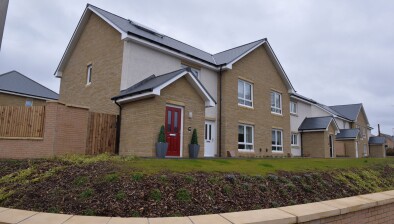Scottish Parliament considers hefty tax hike on second homes

Local authorities may soon have the power to levy up to double the full rate of council tax on second homes if draft regulations before the Scottish Parliament are approved.
If approved, local authorities would be able to apply the council tax premium on homes that are not used as a main residence.
This change, a Programme for Government commitment, attracted majority support in a joint consultation with the Convention of Scottish Local Authorities (COSLA). It will bring second homes into line with long-term empty homes from 1 April 2024.
In the 2024-25 financial year, it will be based on rates from 2023-24.
Public Finance Minister Tom Arthur said: “We want everyone in Scotland to have a home that meets their needs. We know second homes can sometimes benefit local communities, but they can also restrict the availability of housing and increase costs for people who want to rent or buy.
“Subject to approval by Parliament, this legislation aims to prioritise housing for living in by allowing local authorities to charge a council tax premium on second homes. Backed by a majority of respondents to our joint consultation with COSLA, it will enable councils to seek a fair contribution towards local services from second-home owners.”
COSLA resources spokesperson councillor Katie Hagmann said: “Subject to Parliamentary approval, COSLA very much welcomes the ability for councils to take the decision to increase the premium on second homes in their areas.
“Allowing the politicians who are closest to their communities to take decisions about what best suits local needs and circumstances is well aligned to the Verity House Agreement.”
Statistics indicate that as of September 2022, Scotland has 24,287 second homes, which have traditionally enjoyed a 50% council tax discount, although many local authorities opt to charge the full rate. The proposed regulations would be based on the 2023-24 tax rates and, if passed, represent a significant policy shift empowering local decision-making in Scottish housing and fiscal matters.
Propertymark has questioned the Scottish Government’s proposals. The membership body has long called for action to be taken against empty homes as they can lower land values, make it harder to sell other properties nearby and reduce available housing stock.
In the past Propertymark has responded to similar consultations on raising council tax premiums as it said it is vital that policy tackling an increase in empty and second homes does not lead to unintended consequences.
Earlier this year, Propertymark issued a series of questions to members in Scotland to understand how proposals would impact property agents. The majority of members who responded to the survey expressed strong opinions against the introduction of an additional council tax premium on second homes, and while a smaller percentage disagreed with premiums on long-term empty homes, the majority were still not in favour of the Scottish Government’s proposals.
Ultimately, Propertymark and its members support greater research into the causes behind second home ownership and what leads to homes being empty in the long-term as Propertymark disagrees that an increase in council tax premiums will have the impact the Scottish Government desires.
Timothy Douglas, head of policy and campaigns at Propertymark, said: “Propertymark questions the effectiveness of raising council tax premiums on second homes. Similar legislation has been enacted in Wales where, from 1 April 2023, local authorities have had the ability to increase council tax premiums on second homes and long-term empty properties by 300%. This is despite how 79% of respondents to the Welsh Government’s consultation felt that doing so would have little or no effect in tackling housing issues.
“We have seen the legislation have a limited impact on Wales since then, with a minority of local authorities choosing to adopt higher premiums and the supply of second homes being impacted very little. We recommend that the Scottish Government take the lessons learnt from the decisions made by the Welsh Government and to consider alternative ways to incentivise the reduction of second homes.”







